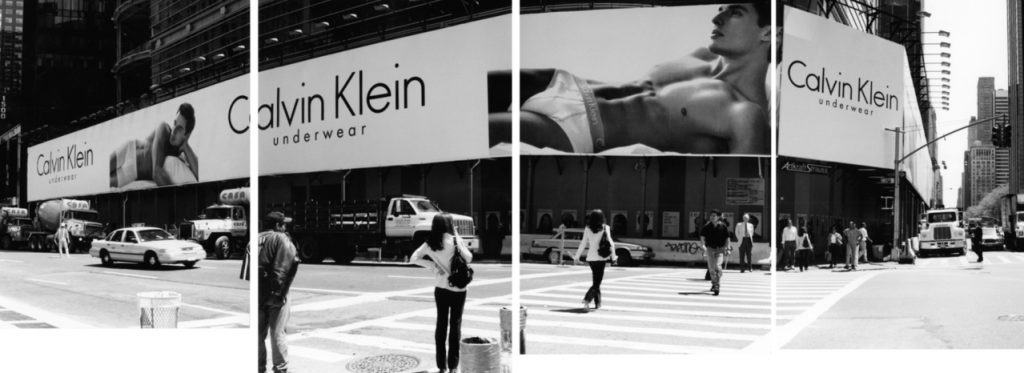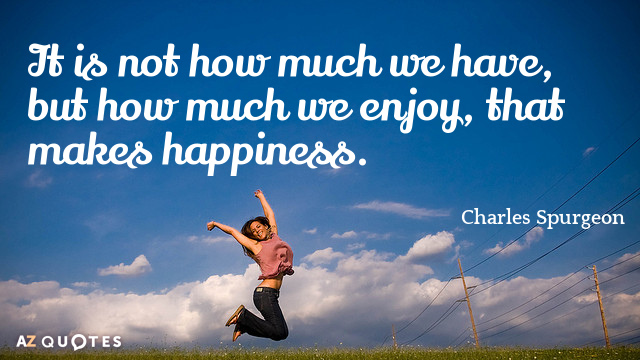Have you ever bought a new car, or a “new to you” car? Have you ever scrimped and saved for that something special? A beautiful new purse, a new pair of Air Jordan’s, the fishing rod you’ve had your eye on for so long, or something you’ve been wanting for a long time. I think everyone can agree when we get that perfect item, it makes us happy. Even though materialism is considered bad, and we have all heard the famous phrase, “Money can’t buy happiness”, many people seem to think otherwise. But in the overall view of things, does materialism really bring happiness?
What is Materialism?
Merriam Webster dictionary defines materialism as a preoccupation with or stress upon material rather than intellectual or spiritual things.
Materialism seems to surround us, at least here in the United States. Commercials on TV, billboard advertising, pictures in magazines, they all seem to relay to us that if you have the newest, latest, greatest item, you will be happy. There’s the Lexus commercial that shows a new Lexus sitting in the driveway on Christmas morning and the surprised and excited recipient running out with a huge smile on their face. The woman who just received a diamond necklace or ring on Valentine’s Day certainly looks happy in the commercials.

The advertising and marketing industries job is to sell these and other items to you with the implication that they will bring happiness. And it’s working. Consumers are wanting more things. They’re wanting bigger, and better, and newer things. Neighbors compete with one another as they try to keep up with or outdo one another. One thing we can’t argue with is that materialism is good for the economy.
You Can’t Take It with You
Have you ever heard the idiom “You can’t take it with you”? This popular phrase was used as the title for a 1936 Broadway play and the 1938 movie production that followed. “You Can’t Take It with You” is a comedy about two families with differing values clashing head-on, as their two adult children have fallen for one another and want to get married. One family is laid back, doing what makes them happy, most of them rather unconventional, and mostly free of life’s problems. The other family owns a very wealthy and powerful company whose intent is to own as much as they can.
As you can most likely guess by the title of the movie, the rich and snobby family learn a powerful lesson from the eccentric family that money and material items cannot buy happiness. Obviously, you can’t take it with you, but the question still remains for most of us: Does materialism bring happiness while we are here still living?
The moral of this movie is that family and friends bring more happiness than money and material possessions. Some studies have shown this to be true. Many researchers think that materialism is linked to unhappiness because it can keep people from personal growth and deter personal relationships. It is also thought that materialism deters from happiness as one can never keep up with the newest, latest, and greatest items. They worry about someone topping what they have, which can lead to a vicious cycle of constant buying newer, and bigger, and better things. Other studies have associated materialism with personality disorders, narcissism, social anxiety and overall dissatisfaction with life itself.
Many have been raised with this general consensus. “Money can’t buy happiness”, “You can’t take it with you”, “Money is the root of all evil” – we hear these things and feel them to be true. There is a lot of science and even personal experience to warrant these feeling true. Materialism doesn’t always bring happiness. But sometimes…maybe it does.
How Does Materialism Bring Happiness?
Back to the beginning of the article. Whenever you purchase a material item that you have wanted, doesn’t it bring happiness? I know it does for me, and I know it does for most people, or they wouldn’t be buying so much.
When I bought my first new car, I was happy. And even today, 6 years later, that car still makes me happy. I’m proud that I’m the one and only owner, I’m pleased that I’ve taken good care of it to provide me reliable transportation, and I’ll probably keep that car until it doesn’t run any more, or until the day I die, whichever comes first. I look at the wedding ring on my finger, and it makes me smile, and it brings happiness. My couch brings me happiness when I want a comfortable place to sit down and watch television. Back to the definition though; I don’t have a preoccupation with these things. That doesn’t mean that others don’t though.
Some studies listed above link materialism with narcissism, but these studies don’t really specify if materialism turns one into a narcissist, or if the narcissist is made happy only through materialism. There are people in this world who are truly made happy by materialism, and who do favor material objects above friends, family and experiences.
A narcissist is so preoccupied with themselves that buying a new Bentley means more to them then helping the homeless. There are other people who are not narcissists, but simply hermits who would prefer a new computer with all the latest technology over a night out with friends. Sometimes, at one time or another, many have had the materialistic instinct to ditch our friends to play with our latest gadget.
Does that make any one of these people bad? Of course not. I know I’ve been guilty of the latter on occasion. Each one of us is unique, and what makes each of us happy is also unique. Most all of us who can afford it are guilty of materialism at some point. And if it makes you happy, and doesn’t hurt anyone, then it’s okay.
Use the Good China

Did your parents have a good set of china that they would always bring out for company, or for special holiday dinners like Christmas and Thanksgiving? Did they have special guest soap and guest towels in the bathroom that you were never allowed to use? Have you ever bought a special candle, or an expensive bottle of champagne, and you’ve yet to use it because you’re saving it for a special occasion? Is that a form of materialism by stressing upon the value of the material object over the enjoyment of using them?
My parents have passed away and I have had a lot of things to go through. I found wedding gifts of theirs that had never been used. Nice linens, crystal, beautiful items that have sat in boxes for over 50 years, never seen, never used.
I’ve also come upon an old baseball card collection left by a young man who lost his life way too early. I’ve been slowly sorting and looking through this collection, and I have found several cards that have value to them. I have also found cards that would be worth a lot, but they had writing on them which significantly decreased their value. The young man who collected these cards loved baseball. He kept track of all the players, and if a player switched teams, he would update the card by crossing out the old team and writing the new team on the card.
This comparison really got me thinking of which material items really made one happier – the beautiful items that hid a basement for 50 years, or a rare baseball card with bent corners and writing on it? Those beautiful items hiding in the basement may be worth more monetarily, but imagine the smile on that boy’s face as he organized, traded, and collected those baseball cards. Imagine how much those fancy linens would have been enjoyed.

I say use the good china to celebrate a good day at work. Don’t wait for guests to get out the fancy towels and pretty soaps. Celebrate the little things in life, like having a safe commute to work, someone giving you an unexpected complement, your child getting a “C” in a class they had a “D” in, a stranger smiling at you. Pop open that expensive bottle of champagne; you deserve it.
Does Materialism Bring Happiness?
After reading this, are you still wondering if materialism bring happiness? To some people, the answer is yes, and that’s okay. Because life is short, and we all need to do what makes us happy. Buying a newcar, buying that new fishing rod – if it brings you happiness and doesn’t break your finances, then go for it. Just make sure you use it. Don’t let it sit in a box for 50 years and be like new. Let it be like the baseball cards that I’m sorting through right now, with bent edges, writing on both sides, or anything else to show that’s it been truly enjoyed.
For me? I’m going to curl up on my couch, light the candle with the shells encased in it that I got on vacation, and read a good book. After all, I can’t take any of it with me.
Stay Gold!



Hi. Enjoy reading your article. To my experience, yes materialism does make you happy but for a short term period only. The high feeling of happiness when you first newly bought it will be different as time go by. That high feeling doesn’t stay long forever.
It is alright to buy something you like to have if you can afford it. But also doesn’t need to feel sad if you can’t afford to own it. Those materialism things are mainly things we WANT but not really we NEED it. Therefore, it doesn’t affect our life if we don’t own it. It’s nice to have but not a MUST to have things.
Hi Willow. I really enjoyed your article, which gives a really well balanced argument. I can relate to a number of the things you say and agree it’s good that, for example, you are happy with your car and not constantly looking to upgrade. We get the best china and cutlery out every Christmas, but from now on will look for other opportunities to enjoy it (though neither is dishwasher proof, so it’s not all fun).